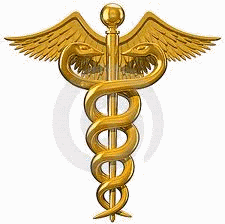© Kucoba.com Webmaster Tools | Blogger Tool
Eating fibrous food doesn't lower the risk of someone's high of diverticulosis. It is based on a new study that contradicts what is believed to be the doctor for decades.
Diverticulosis is a small bulging SAC or pouch of the layers in the bowel of becoming inflamed or infected. Most often, these bags are in the large intestine (colon). No one knows exactly what causes diverticulosis.
Diverticulitis is caused by small bits of grime (fecal matter) who are trapped in the bag, causing infection or inflammation. During this low fiber diet is often thought of as the cause of diverticulosis. However, new research results is precisely stated otherwise.
Researchers at the University of North Carolina School of Medicine analyzed data from more than 2,100 patients aged 30 to 80 years, undergoing outpatient colonoscopy between 1998-2010. The patient was interviewed about the everyday diet, defecation, and
the level of physical activity.
Patients with the lowest fiber intake is 30 percent lower to develop diverticulosis which has the highest intake. The research results have been published in the journal Gastroenterology Edition February 2012.
"The study also shows that constipation is not a risk factor. The participants of the research that has more than 15 times the bowel movements a week are 70 percent more likely to develop diverticulosis are less than 7 times the bowel in a week, "said the researchers such as reported by of HealthMonitor, Wednesday (8/2/2012).
The researchers in the study found a link between the consumption of fiber, defecation, and the risk of diverticulosis does not prove a causal relationship. In addition, there is no visible relationship between diverticulosis and lack of physical activity or the intake of red meat or fat.
"The results of the study are quite interesting for researchers," said Dr. Anne Peery of Gastroenterology and Hepatology Division.
Diverticulosis affects about one-third of adults in the United States who are over 60 years old. Most cases do not cause symptoms, but the condition can cause complications such as bleeding, infection, perforation of bowel and even death.
People with diverticulosis often show no symptoms, but they may have bloating and cramps in the lower part of the stomach.
Symptoms of diverticulitis can be more severe and often appears suddenly, and may get worse over the next few days, among others:
1. Abdominal bloating
2. fever and chills
3. nausea and vomiting
4. don't feel hungry and not eat






